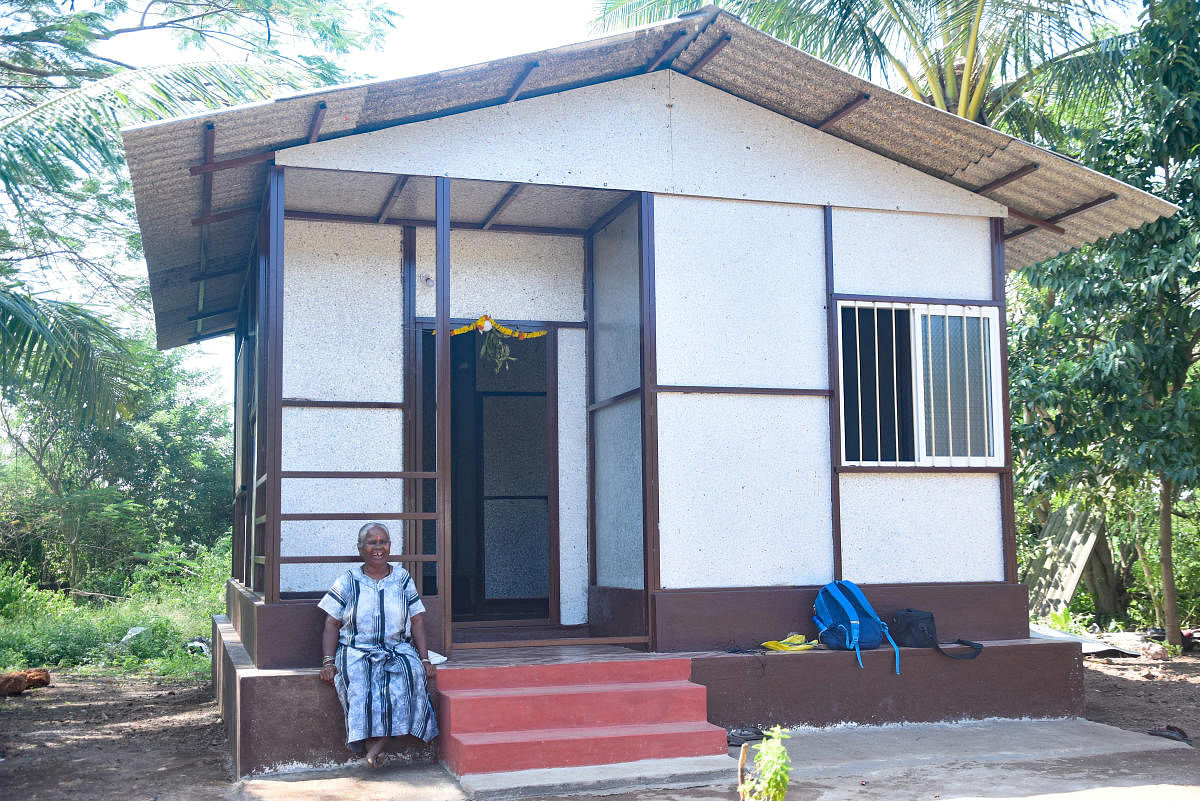
The Plastics For Change India Foundation, which has been working to develop and improve the quality of life of informal waste collectors across the coastal belt of Karnataka, has constructed a house for a waste collector using recycled plastic, at an estimated cost of Rs 4.50 lakh, at Pacchanady.
Speaking to reporters, Shifrah Jacobs, chief impact officer of Plastics For Change India Foundation, said that 1,500 kgs of recycled plastic were used for the construction of the house of Kamala, one of the beneficiary.
About 60 panels produced by recycled plastic have been used. Each panel is prepared using 25 kgs of plastic.
“This is an innovative and environmentally sustainable project that converts hard-to-recycle plastic waste into building material that can be used to construct low-cost shelter.”
“This is Karnataka’s first environmentally friendly ‘recycled plastic house’ in Mangaluru. The durability test of the construction material has been conducted before building the house,” she said.
The house was constructed with the help of a construction partner from Hyderabad. The construction cost can be reduced if more houses are constructed at a time, she said.
“In the second phase, we are planning to come up with 20 such houses and more than 20 tonnes of plastic will be utilised. This can be used for multiple applications, including construction of toilets,” Shifrah added. The Foundation has been working with communities located in Pacchanady and Kurikatta in Mangaluru.
Online educational prog
Shifrah said, “To ensure that the children from low income communities have continued education, we have stepped in by providing supplementary tuition classes and by setting up virtual online classes (with smart TV) for students from classes VI to X in the community.”
“A total of 20 children are benefited from this initiative in Pacchanady and Kurikatta.”
The initiative is being set-up to ensure that the quality of education for these children aren’t affected, despite their inability to go to schools, she added.
“Apart from ensuring that social-distancing protocols were maintained, the classes also provided nutritional supplements for its attendees.”
“The Foundation is now establishing virtual classrooms, allowing for teachers from cities like Bangaluru to teach these children through smart TV setups,” Shifrah added.